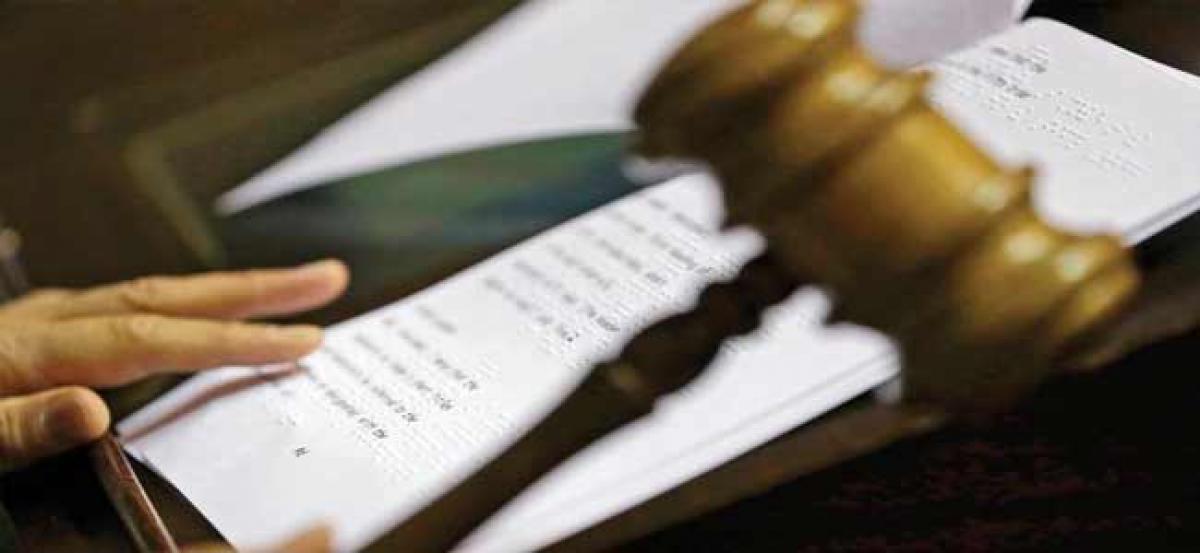Live
- New TTD Trust Board to meet in Tirumala today
- Drone survey held for laying smart roads
- MyVoice: Views of our readers 18th November 2024
- It’s time to defeat betrayers: Revanth in Maharashtra
- Committees formed, assigned tasks
- Let law and order be in sole domain of union!
- Group-III exams off to a smooth start
- KTR invited as guest of honour at TiEcon Kerala 2024
- KTR gets his freedom in a deal done in Delhi: Bandi Sanjay
- Hyderabad Ready to Host FIFA Friendly Football Match Between India and Malaysia
Just In

The Supreme Court on Monday refused to entertain a plea challenging the Constitutional validity of Section 375 of Indian Penal Code IPC which deals with rape on the ground that the provision is not genderneutral
New Delhi: The Supreme Court on Monday refused to entertain a plea challenging the Constitutional validity of Section 375 of Indian Penal Code (IPC) which deals with rape on the ground that the provision is not gender-neutral.
A bench headed by Chief Justice Ranjan Gogoi and Justice S K Kaul said the issue raised in the petition is a subject matter of the legislature's domain.
"The issue falls in the realm of the Parliament. We don't want to say anything on it right now", the bench said, while granting liberty to the petitioners to make a representation to the legislature.
While Section 375 of the IPC deals with rape committed on a woman by a man, Section 376 lists out the punishment for the offence. The top court was hearing a petition filed by NGO Criminal Justice Society of India, through advocate Ashima Mandla, contending that Section 375 violates Articles 14, 15 and 21 of the Constitution as it does not account for rape of men and Transgender persons.
The plea sought that the definition of rape under Section 375 be held "ultra vires" for being "discriminatory and violative of Articles 14 (right to equality), 15 (prohibition of discrimination on grounds of religion, race, caste, sex...) and 21 (right to life and personal liberty) of the Constitution".
The petitioner has submitted that the section applies only to women as victims and men as perpetrators. It does not take into account non-consensual sexual assault inflicted on a woman by a woman, on a man by another man, on transgender by another transgender or a man or woman, on a man by a woman.
The plea referred to the August 2017 order passed by a nine-judge bench of the top court that declared privacy as a fundamental right and also cited the NALSA judgment that recognised transgenders as the third gender.
"It is imperative to note that transgenders including but not limited to homosexuals & bisexuals, and men are sequestered from the point of view of victims of rape under the existing penal laws of the country, despite an impending need for the same", the plea said.

© 2024 Hyderabad Media House Limited/The Hans India. All rights reserved. Powered by hocalwire.com







